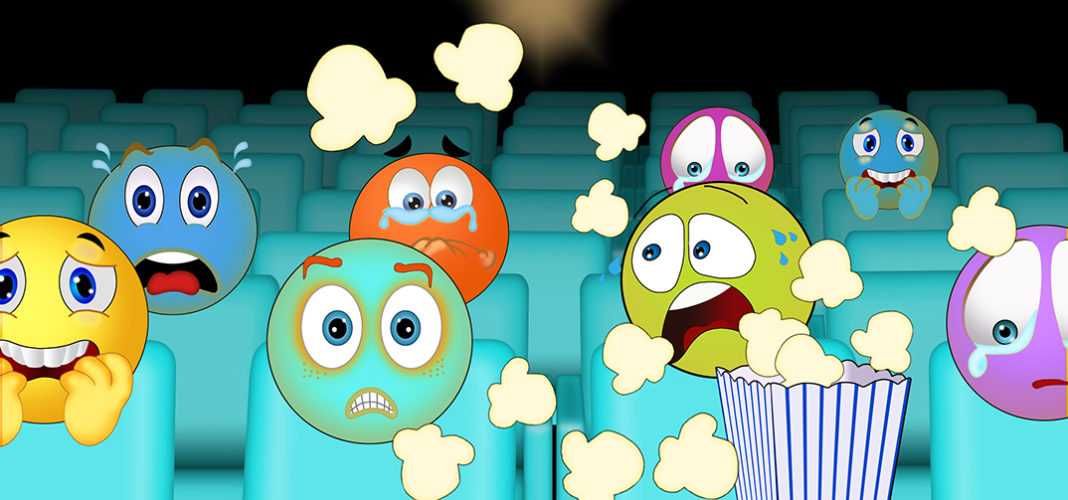Why do some people love to be afraid? Psychologists tell us we are pleasure-seeking and pain-avoiding creatures and yet many are drawn to scary movies and other hair-raising experiences:
Audience members of an effective horror film often appear to react in much the same way as they would if they were confronted with a terrifying and disgusting situation outside the theater. They grimace, cower, dig their nails into their armrests, cover their eyes, and plead in vain for someone to make it stop. When they leave…many of them speak of the experience they just had with great enthusiasm and express eagerness to return for more of the same.
We humans are a strange species indeed. Psychologists call the enjoyment of painful emotions like disgust and fear, the “paradox of horror.” It turns out happiness and horror can go hand in hand. This makes no sense at all…or does it?
Aristotle believed people are drawn to scary stuff because it provides a safe way to purge themselves of aggression and other negative emotions. A more modern interpretation is that artificially scary situations provide vicarious thrills, excitement, and an experience of being fully alive. Certainly some people are more arousal seeking than others and these adrenaline junkies are typically the same types who love roller coasters and bungee jumping. (Full disclosure: I would rather watch paint dry than sit through a Chuckie or Freddy Krueger film.)
Watching a scary film can also be a bonding experience and cultivate connections between moviegoers for “surviving” the horror together. Fright facilitates canoodling and removes barriers that might otherwise inhibit close physical contact. A scary moment is the best excuse to grab someone’s hand or literally jump into their lap. Perhaps this helps explain why scary movies are so popular with couples on date nights.
While there may be benefits to facing one’s fears in a horror movie, a study showed how watching a scary movie impacts subsequent decision-making. In the study, they showed half of the participants horror movies while the other half watched documentaries about Vincent Van Gogh and Benjamin Franklin.
Afterwards, they were all asked to participate in a stock market simulation experiment. Those who watched horror movies were far more likely to sell early. The belief is that a scary experience triggered lingering fear and that this fear was projected onto decisions later on.
Arthur Conan Doyle famously said:
“Where there is no imagination – there is no horror.”
Just don’t let your imagination run away with you.
I wish you all the best,
Dr. Samantha Boardman






